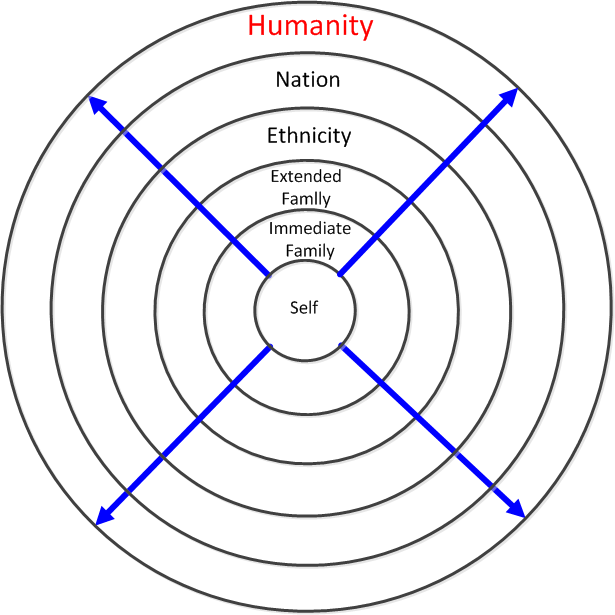The Philosopher-King on how we abuse ourselves

All of us have at one point or another become discontented with our lives. Some of us work for companies we’re not happy with, others are not satisfied with the direction their life has taken, and some are struggling with heartbreak. These are natural occurrences in life, but all in all, life can begin to eat away at our soul.
We begin to become depressed. We begin to feel as though we are worthless. We become unhappy with our lives. Some of us lean into the existential and begin to look at our place in life and ask ourselves what the point is in all of this.
What is the point of my place in the universe?

These feelings and emotions, these longings for a place, for a happy life, they’re not new. The Hellenistic schools of philosophy focused precisely on the question of what it meant to live a good life. The Stoics in particular believed that life is meant to be lived virtuously, in other words, in the pursuit of wisdom and reason. The Stoics also separated events and situations into things they could control versus those they could not. This simple distinction helped many to live happier and more fulfilled lives.
Marcus Aurelius, the Roman Emperor (161–180 AD) who studied Epictetus’ Discourses and was highly inspired by them, used his journal to better reflect on his place in life.
Held within book two of the Meditations, Marcus summarizes exactly what, in his opinion, eats away at our soul. In the process of doing so, he summarizes several key tenets of the Stoic philosophy.
The human soul degrades itself by…
Not Living in Accordance with Nature
“To be disgruntled at anything that happens is a kind of secession from Nature, which comprises the nature of all things.”
“Nature” according to the Stoics represented both the nature of ourselves as human beings in society, as well as the nature that is the material world. Their belief in “God” was that of a pantheist view, in other words, God was nature, God was embodied in everything.
We are all given roles in life and society. The Stoics, and Zeno the founder of Stoicism, spoke to the idea of acting rightly in the roles we were given. This is what creates a “smooth flow of life.”
Within each of us, according to Zeno, was an inner purpose, and it was our job to find, nurture, and grow that inner purpose for the betterment of the world. This is living in accordance with nature. It is maximizing what our potential is and applying it to better the world around us.
“Why do we complain about nature? She has acted kindly: life is long if you know how to use it.”
Seneca. On the Shortness of Life
By Not Embracing Our Community
“When it turns its back on another person or sets out to do it harm…”
We, as human beings, were built for one another, according to the Stoics. Hierocles, a Stoic teacher, wrote The Elements of Ethics and On Appropriate Acts, which partially survive today providing us with a better understanding of the Stoic “Golden Rule” for living.
Hiercoles states:
“Act by everyone, in the same manner as if you supposed yourself to be him, and him to be you.”
Hierocles is perhaps most known, however, for the Hieroclean Circle, which provides an overview of how to live in society. According to Hierocles, we are at the center of our circles. This aids us in our perceptions of the world, and from our perceptions, our desire for self-preservation. The next circle is that of our family, and so on and so forth.
The key is to remember that we are all part of the larger whole. We are connected to our neighbor and they to us. It is our job to work towards mutual cooperation with each other to better the world we live in. We play an integral part in society and to those within it. While sometimes we may wish it, we are not a single island in the midst of an ocean but are instead a functioning part of a much bigger world.

Marcus Aurelius often references this and reminds himself of the need to remember we are a part of a society. He is known for saying what injures the hive injures the bee, a direct reference to our role in society.
“What is rational in different beings is related, like the individual limbs of a single being, and meant to function as a unit.
This will be clearer to you if you remind yourself: I am a single limb (melos) of a larger body — a rational one.”
Marcus Aurelius. Meditations. 7.13
By Giving in to Pleasure or Pain
“When it is overpowered by pleasure or pain.”
The Stoic virtue of temperance teaches one to find a balance between extremes through mindfulness and self-study. Pleasure and pain are no different. We must use reason to handle pain, both emotional and physical, and moderation to control pleasure. Giving in too much to emotions takes control away from our reasoning minds. For example, when one becomes angry and “only sees red”, there is no stopping what comes next. This is a loss of control that the Stoics sought to end.
As to sickness of the body, Epictetus states:
“Sickness is an impediment to the body, but not to the will unless the will wants to be impeded. Lameness is an impediment to the leg, but not to the will. If you tell yourself this at every occurrence, you will find the impediment is to something else but not to yourself.”
Epictetus spent a majority of his life lame due to a leg problem. Origen states it was from a cruel master twisting it until it snapped, others believed he had it since birth. Either way, Epictetus walked with a limp and spoke about the need to shift our perspective from being the victim to being in control of one’s actions and thoughts. It was through this logic and reasoning that Aaron T. Beck founded Cognitive-Behavioral Therapy (CBT).
“Even their pleasures are uneasy and made anxious by various fears, and at the very height of their rejoicing the worrying thought steals over them: ‘How long will this last?’”
Seneca. On the Shortness of Life
By Believing in Falsities (opposite of reason and wisdom)
“When it puts on a mask and does or says something artificial or false.”
Stoicism is about using reason. The Stoics believed in a “universal” or “divine” reason known as the logos. This is an underlying logic that guides all things.
Zeno, the founder of Stoicism, once declared:
“That which uses reason is superior to that which does not. Nothing is superior to the universe. Therefore the universe uses reason.”
Zeno as quoted by Cicero in How to Think About God
To the Stoics, if we learn how to properly use reason, then we have more control over our lives as we become a clearer thinker. Many of us rely upon emotion to guide us, but the Stoics saw problems in this. Emotions are uncontrollable and can lead to many negative things such as destruction that often comes with anger as we mentioned above. But through reason, one can experience a sensation which leaves an impression on the mind. We, using judgment, then have the ability to approve or reject this impression as true or false.
To the Stoics, it is only through reason that we can successfully navigate life and gain a clearer understanding of it.
If you’ve immersed yourself in the principles of truth, the briefest, most random reminder is enough to dispel all fear and pain.
Marcus Aurelius. Meditations. 10.34
By Ignoring Our Governing Principles
“When it allows its action and impulse to be without a purpose, to be random and disconnected: even the smallest things ought to be directed toward a goal.”
The world has principles that guide everything within it. Scientists spend the majority of their careers trying to better understand and then articulate these guiding principles. We too have principles which guide our lives. Some are from childhood, others have been developed through experience. The key is to understand what our governing principles are and use them to our advantage.
Chrysippus, the third leader of the Stoic school, once remarked:
“The universe itself is God and the universal outpouring of its soul; it is this same world’s guiding principle, operating in mind and reason, together with the common nature of things and the totality that embraces all existence; then the foreordained might and necessity of the future; then fire and the principle of aether; then those elements whose natural state is one of flux and transition, such as water, earth, and air; then the sun, the moon, the stars; and the universal existence in which all things are contained.”
If we were to ignore the principles which operate the world, we would be lost. The same goes for ourselves. If we do not spend the appropriate amount of time through reflection and self analysis to understand ourselves, we will never truly be happy nor will we be as successful as we could have been.
No random actions, none not based on underlying principles. Marcus Aurelius. Meditations. 4.2
Summary
One can maintain a good life by following the principles of
The human soul degrades itself…
i. To be disgruntled at anything that happens is a kind of secession from Nature, which comprises the nature of all things.
ii. When it turns its back on another person or sets out to do it harm…
iii. When it is overpowered by pleasure or pain.
iv. When it puts on a mask and does or says something artificial or false.
v. When it allows its action and impulse to be without a purpose, to be random and disconnected: even the smallest things ought to be directed toward a goal.
We send a Stoic meditation every Monday morning directly to your inbox. To sign up to receive our Monday Meditations, click here.
The Stoic Within participates in the Amazon Services LLC Associates Program, an affiliate advertising program designed to provide a means for sites to earn commissions by linking to Amazon. In more simplistic terms, if you buy a book on Amazon from a link in this article, I receive a very small percentage of its price.




